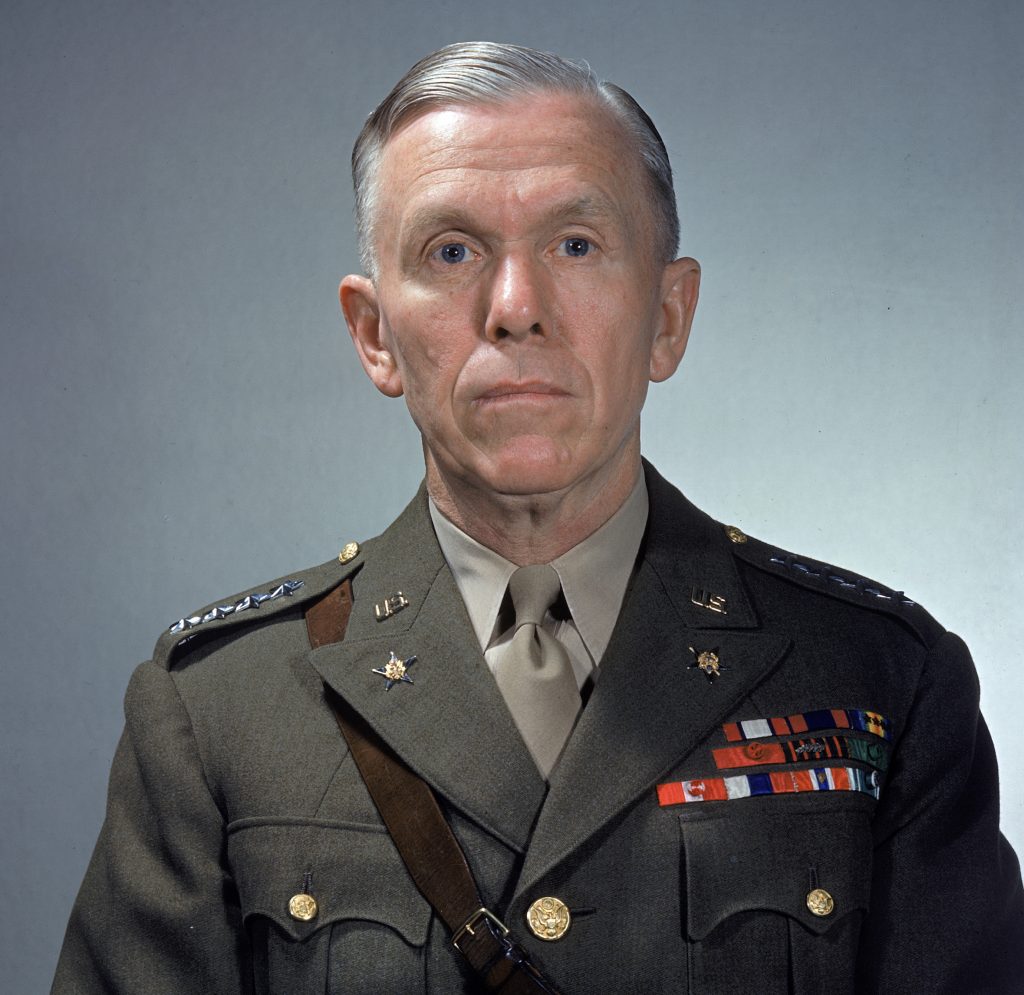
What you can learn from the life of George Marshall, who ran the war for the Allies during World War II, rebuilt Europe through the Marshall Plan and whose leadership saved the world from tyranny and evil.
How the life events of George Marshall shaped his mindset, enabled him to overcome challenges and become a master of himself. He epitomized the values of duty, discipline, self control and humility. This enabled him to become the indispensable man to President Roosevelt, the allied leaders and the United States of America.
His name may have faded from our collective memory, but George Marshall did as much as any other single person to advance the cause of freedom in the 20th century.
“His was a career that paralleled America’s rise to and acceptance of global responsibilities. Marshall was a creator not only of America’s awesome military power as Army chief of staff in World War II, but also of its major foreign and global strategies as a postwar Secretary of State and Secretary of Defense. Statesman as well as soldier, his character and accomplishments are so exceptional that he is regularly placed in the company of George Washington when parallels are sought.” ~ The George C. Marshall Foundation
It is said George Marshall won World War II and won the peace. What guided his success was an unflinching candor — and ironclad integrity — that enabled him to forge relationships of trust with world leaders as major events of the 20th century played out.
“There are few men whose qualities of mind and character have impressed me so deeply as those of General Marshall.” ~ Winston Churchill
Marshall’s superpower was his mastery of himself — his ability to control his emotions and ego and remain magnanimous in his dealings with others. By burying his self-interest, he was able to exercise a level of honesty in his advice and counsel that elevated him above politics. He never hesitated to tell superiors when he thought they were wrong — even when it might endanger his own career.
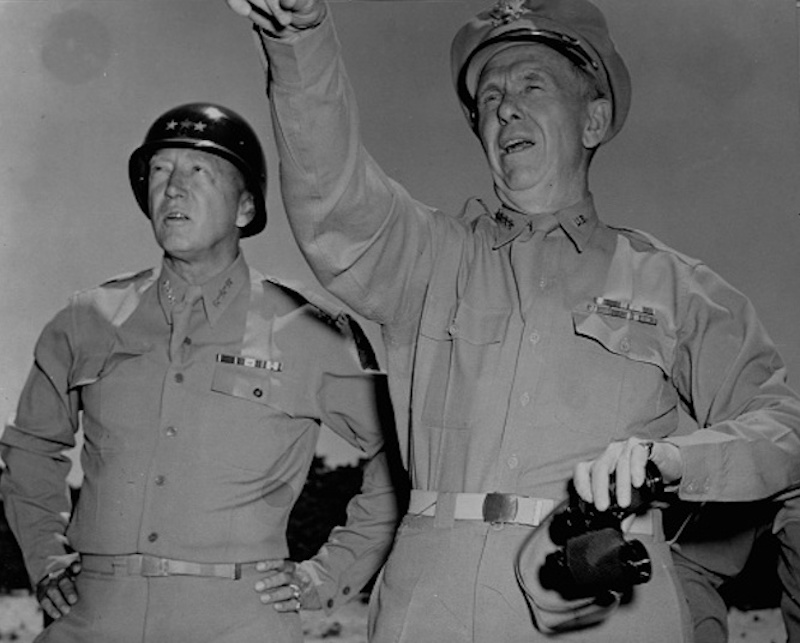
Marshall was not only authentic — a hallmark of great leadership — but he recognized problems couldn’t be solved unless they were discussed openly and honestly. The result — world leaders valued and trusted his judgment.
“A few of his characteristics are uppermost in my memory, and on these I shall dwell. They include his consideration for others; his clear, direct, and logical approach to any major military problem; his complete, single-minded dedication and loyalty to his country and government; and his selflessness and objectivity in making decisions and in courageously discharging his vitally important duties.” ~ Dwight D. Eisenhower
Growing up in Uniontown, Pennsylvania, Marshall showed little sign of the greatness to come. His older brother attended Virginia Military Institute and discouraged George from following him there, thinking George would disgrace the family name. The slight sparked Marshall’s masculine energy, compelling to him to want to prove his brother wrong.
Marshall attended VMI anyway, where he developed a mindset to succeed and learned lifelong values of self-control, duty and discipline. These values allowed him to master himself and become self-reliant — qualities that empowered him to stretch beyond his comfort zone to reach his full potential.
People in your inner circle are supposed to care about you and want to see you do well in life. However, some invariably don’t want to see you do better than them. In Marshall’s case, it was his own brother. By becoming self-reliant, trusting in himself, and having an emotionally compelling reason to prove himself, Marshall pushed past his doubters and critics and set his mindset to succeed in spite of any and all opposition.
Commissioned as an Army second lieutenant in 1902, Marshall was posted to Ft. Leavenworth, and then the Philippines where his planning and execution of a mock invasion of Manila revealed a brilliance for field command that caught the attention of Army brass. When World War I broke out, Marshall’s talent would be put to the test.
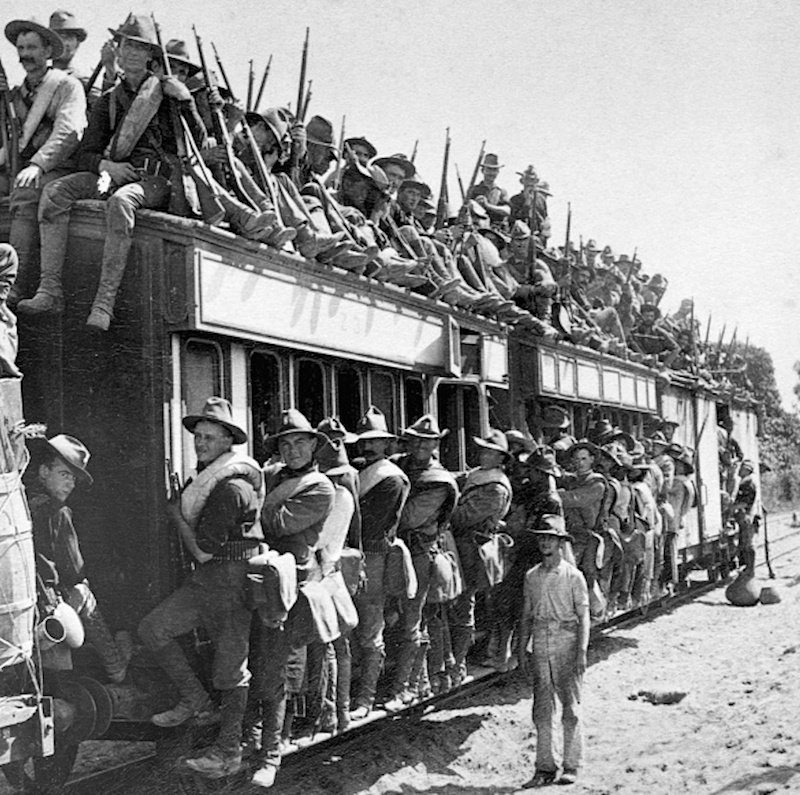
As the US entered the war, Marshall was made Army 1st Division’s Assistant Chief of Staff and sent to France to help prepare US troops for battle. In the advance guard disembarking at St. Nazaire, he was shocked at how unprepared US troops were and dismayed that confusion at headquarters was hindering training.
“A pint of sweat saves a gallon of blood.” ~ General George S. Patton
General John J. Pershing, leader of the American Expeditionary Force, was under extreme pressure from the French to get US troops into battle. While inspecting 1st Division’s troops, he was frustrated at the slow progress and dressed down his subordinate officers. Marshall pushed back, telling Pershing they were being inhibited by Pershing’s own command staff.
Everyone there believed Marshall’s career was over. But Pershing appreciated Marshall’s candor and began seeking out his advice, promoting him to headquarters as an aide.
Marshall’s straight-talk earned the trust and respect of French and British leaders as the three armies coordinated their efforts to defeat the German army. Marshall planned an attack at Cantigny that won America its first victory of the war. But his big achievement was planning the American offensive at Meuse-Argonne, a campaign to end the war by launching successive attacks on German lines and giving them no time to regroup.
Marshall devised the battle plan in 24 hours, moving 200,000 French troops out of the front lines and replacing them with 600,000 American troops and 200 big guns in total secrecy. Pershing thought “it was a fine piece of work.”
As architect of the Meuse-Argonne campaign that ultimately defeated Germany, Marshall ended the war with a reputation as a brilliant tactician and solid relationships with French and British military leaders who appreciated his candor. Supreme Allied Commander Marshall Foch prophetically told Marshall, “we have cemented our ties of friendship, and if ever in the future we shall find it necessary to unfurl our banner, then we know we shall continue as brothers-in-arms.”
In 1919, Pershing became US Army Chief of Staff and made Marshall his chief aide. Pershing knew it was an asset to have a man like Marshall as a feedback loop — someone who would never be a yes man and always give him unfiltered counsel.
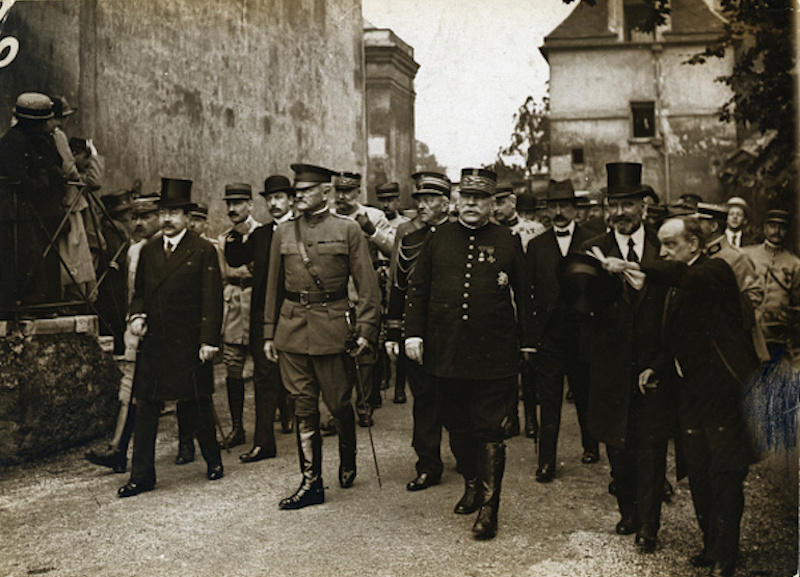
Throughout the 1920s, Pershing and Marshall led the effort to convince America of the need for a strong defense, as the Army shrank to 120,000 men. Marshall did a 3-year tour of duty in China, gaining knowledge of the country and its politics that would be useful in future assignments. But his most impactful job was commanding the Army infantry officer training school at Ft. Benning, Georgia, where he redesigned the curriculum to focus on tank and air support and small unit tactics — and to advance officers who showed ingenuity and experimentation. Marshall’s program would produce the backbone of the Army’s combat leadership in World War II, including Eisenhower, Patton, Mark Clark and Omar Bradley.
In 1936, Marshall was promoted to Brigadier General and brought to Washington DC to help rebuild the US military. A storm was brewing across the Atlantic as fascists rose to power and began showing their true intentions. Mussolini seized Ethiopia. Hitler barged into Czechoslovakia, and Japan rampaged across China.
Marshall made the case to President Roosevelt for a larger army. Impressed by Marshall, Roosevelt summoned him to the White House, telling him, “General Marshall, I have it in my mind to choose you as the next Chief of Staff of the US Army, what do you think of that?” Marshall responded, “Nothing, except to remind you that I have the habit of saying exactly what I think… Is that all right?”
Marshall assumed duties on the day Hitler invaded Poland. He would have his work cut out for him. At the time, the US Army could only field 4 divisions while the Nazis had over 100 divisions and the Japanese more than 40.
Marshall’s first challenge was to convince Congress to pass a mandatory military draft at a time when the country was at peace. Driven by opposition to the President and “America First” isolationism, the majority of the country wanted to stay out of the war.
As Nazi Germany overwhelmed France, Marshall knew dramatic measures were needed to build up manpower, infrastructure and equipment. Marshall cornered Roosevelt and told him straight up, “you have got to do something and you’ve got to do it today.” Roosevelt asked Congress for $1.1 billion in supplemental military spending to create a rounded out army. Congress approved $1.4 billion.
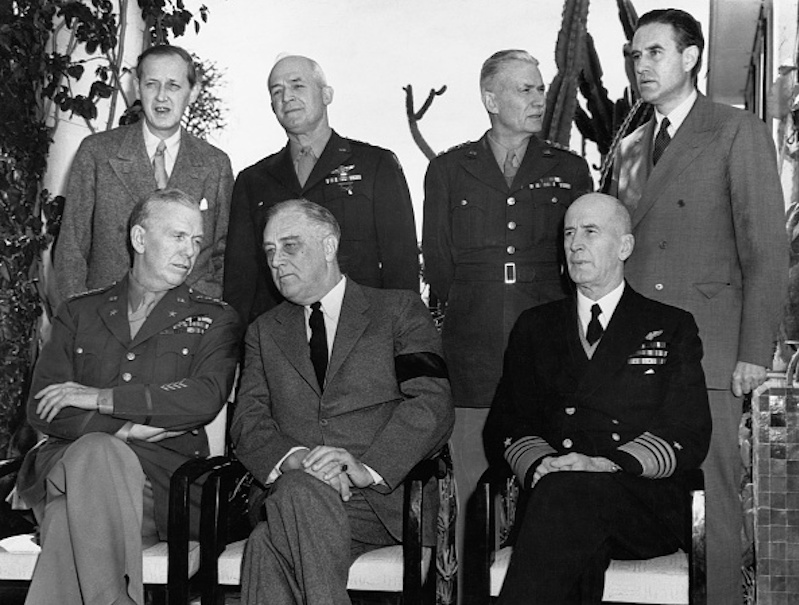
Arguing for a peacetime draft, Marshall told Congress that having an army of citizen soldiers was the best way to avoid being drawn into the war and being able to preserve the American way of life. Because Marshall was seen as apolitical and had a reputation for honesty, Congress put partisanship aside and approved the peacetime draft.
Marshall increased the army from 170,000 to over a 1.5 million men by mid-1941. Now, he had to save it. The draft bill provided only a 1 year horizon on service. After 1 year, the soldiers would be released from duty.
In Europe, the war had worsened as the British army narrowly escaped extermination on the beaches of Dunkirk. Despite this, Roosevelt was reluctant to increase troop strength or extend the draft for political reasons. Isolationist forces were stronger than ever and Roosevelt wanted to build more airplanes.
At a meeting of war planners in Washington DC, Roosevelt laid out his plan for ramping up aircraft production. Everyone in the room agreed — but when Marshall was asked to weigh in, he responded, “I am sorry, Mr. President, but I don’t agree with that at all.”
Roosevelt listened as Marshall bluntly told him that Germany wouldn’t be defeated by supplying arms and airplanes to friendly nations. The Nazis would only be beaten with large numbers of ground forces prepared to launch a massive ground offensive.
The draft bill was set to expire in October 1941 — releasing 600,000 soldiers from duty. Roosevelt made Marshall point man to convince Congress the national interest was imperiled. Marshall made the case, but the votes weren’t there. For many in Congress, it was immoral to back out of service terms guaranteed to the draftees and it would be political suicide during an election year.
Marshall called a special meeting of Republican congressmen and made a personal appeal. Congress ended up passing the bill by a margin of one vote. Without Marshall’s direct appeal, the bill almost certainly would have failed and the US army disbanded on the eve of Pearl Harbor.
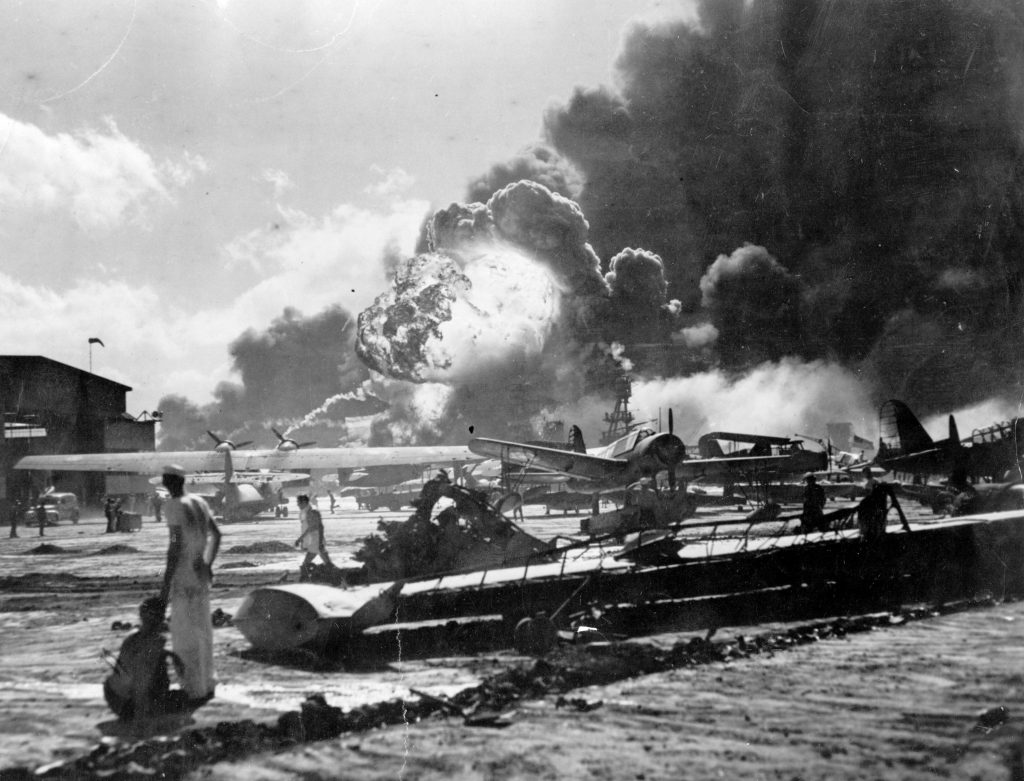
After Pearl Harbor, isolationist sentiment in America collapsed as Japan and Germany both declared war on the U.S. The Japanese quickly seized the Philippines and Singapore, while General Rommel’s German Africa Corps swept across North Africa and the bulk of the Nazi army waged war on the Soviet Union.
Marshall now had the support of the country as he mobilized the nation to build the greatest war machine the world had ever seen and set about devising a winning strategy. The future of the free world now rested on his shoulders more than any other person.
On the home front, Marshall harnessed the nation’s industry to produce weapons and war supplies. In Hollywood, he met with movie director Frank Capra, commissioning a series of documentary films to make sure America’s soldiers understood why they were fighting, and he enlisted movie stars to help sell war bonds.
On the war front, Allied commanders had three options. Focus on the war in Europe first — concentrate on defeating Japan — or focus on both at the same time.
“Don’t fight the problem, decide it.” ~ George C. Marshall
Marshall advocated a “Germany First” strategy, convinced the German war machine had to be destroyed first. He elevated a team of generals who could do the job, making General Patton commander of the 2nd armored division and bringing General Eisenhower to Washington to work on war plans.
Marshall deftly played the role of statesman and general to get allied political and military leaders with competing ideas and agendas on the same page.
Two weeks after Pearl Harbor, US and British leaders met secretly in Washington D.C. for a planning session. Marshall emerged as the key man, designing the mechanics for the joint conduct of war under unitary command and convincing Allied leaders to put it into action.
Marshall’s plan to defeat Germany was to invade France across the English Channel in 1942 — before the Germans had fortified the French coast with Hitler’s vaunted “Atlantic Wall.” The British opposed the idea, still traumatized by their close-call with the almost total annihilation of their army at Dunkirk. The plan was shelved as rapid Japanese advances across the Pacific seized America’s attention.
As the Allies plotted their next move, Roosevelt and Churchill wanted a quick victory to boost the morale of Allied forces and the people back home. They ordered Operation Torch — an Allied invasion of North Africa. Marshall put Eisenhower in command.
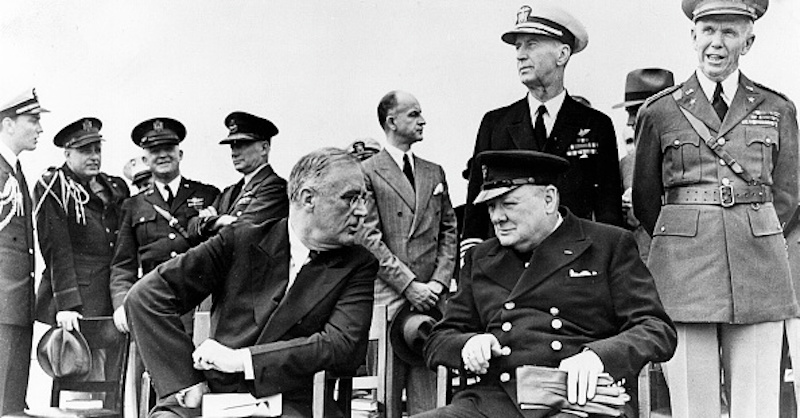
It’s possible Marshall’s plan to attack Europe in 1942 would have won the war sooner, but the die was cast. Operation Torch launched on November 8, 1942, with Allied forces invading French Morocco and Algeria. Over the next seven months, Allied troops swept the collaborationist French and German forces out of North Africa and delivered the Allies their first substantial victory.
The key strategy meeting came in May 1943 in Washington DC. Allied leaders were split on what to do in Europe. Marshall continued arguing for an invasion of France. Churchill wanted to take Greece first and attack Europe from the south. Marshall kept pushing, finally convincing Roosevelt and Churchill to set a May 1944 date for Operation Overlord — an amphibious invasion of Normandy France.
As Allied leaders met again in Cairo, Egypt in November 1943 to plot the war in Asia, the question remained — who would command Overlord — Marshall or Eisenhower? Churchill and Stalin thought command should go to Marshall as the plan’s architect and chief proponent. Though everyone assumed Marshall wanted the command, there’s no record of him ever saying so.
When the time came for Roosevelt to make the decision, he put it on Marshall, asking him what he wanted. The command was Marshall’s for the taking, something he almost certainly coveted for himself. Instead, he buried his self-interest — telling Roosevelt to feel free to act in whatever way he felt was best for the country.
Marshall recognized Roosevelt was under extreme pressure as a wartime leader, and needed to be in a relaxed state of mind to make his best decisions. By taking his own ego out of the equation, Marshall made sure Roosevelt was in the best emotional state to make the critical decisions that ultimately won the war.
Marshall’s self mastery, humility and control of his ego freed the President to make this key decision unfettered by personal feelings. He chose Eisenhower, telling Marshall “I couldn’t sleep nights, George, if you were out of Washington.” For Roosevelt, Marshall was the indispensable man, needed in Washington to oversee military action around the world.
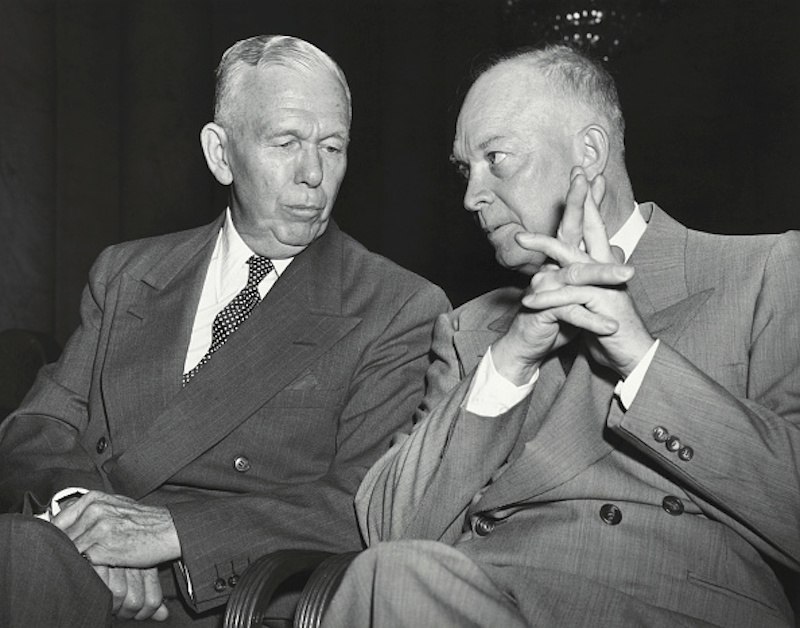
Roosevelt dictated a telegram to Marshall for Stalin. “From the President to Marshal Stalin. The immediate appointment of General Eisenhower to command of Operation Overlord has been decided upon. Roosevelt”
Marshall sent the original command order to Eisenhower, with a short note: “Dear Eisenhower, I thought you might like to have this as a memento. It was written very hurriedly by me as the final meeting broke up yesterday, the President signing it immediately.”
This simple gesture epitomized Marshall’s good character, showing that he was of great mind and heart, was acting for noble purposes and refused to be petty. Marshall could have equivocated, letting Eisenhower know the command had been his own for the taking, but that he had deferred to the President. Instead, his note conveyed to Eisenhower that both Marshall and the President were one hundred percent behind the decision. Knowing he had their full support, Eisenhower was empowered to make the high stakes decisions that brought victory to the Allies.
On June 6, 1944, some 156,000 Allied troops stormed the beaches of Normandy. When the smoke cleared, Overlord was a success with Allied forces establishing multiple beachheads on the French coast.
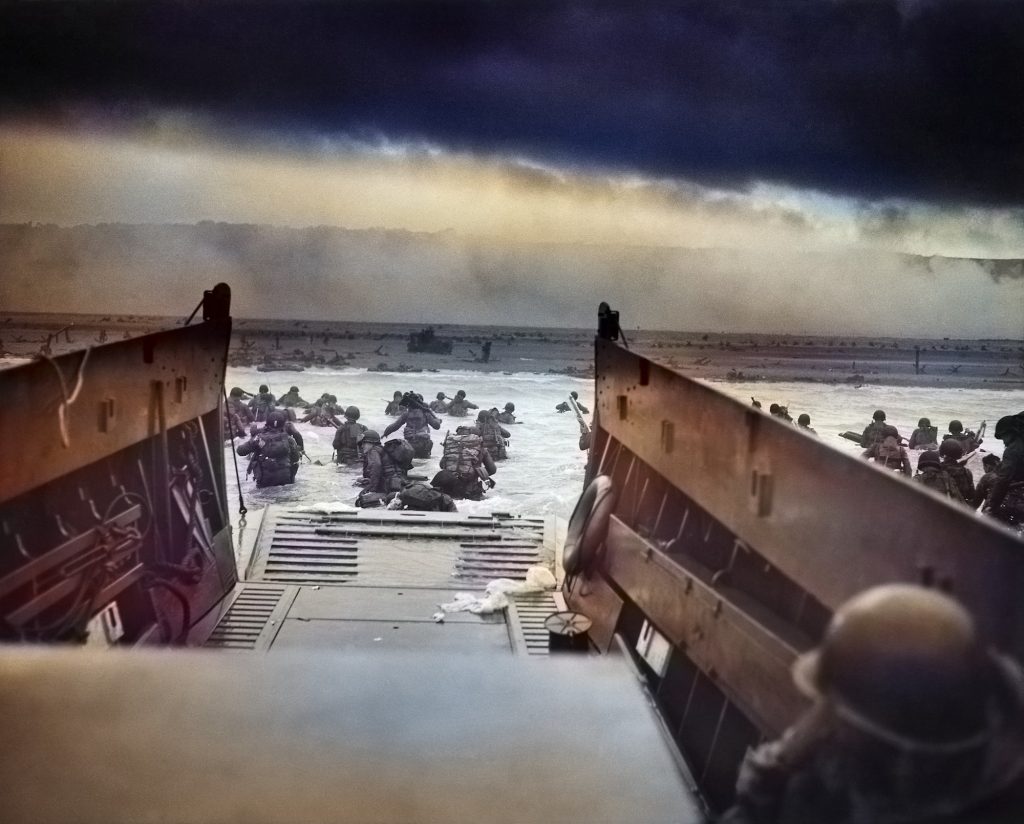
Eisenhower would receive all the glory and fame for the Allied victory on D-Day, but everyone knew Marshall had directed behind the scenes.
“He is the true ‘organizer of victory.” ~ Winston Churchill in a telegram to Washington D.C. (1945)
As Allied forces fought through the Battle of the Bulge and closed in on Berlin, Germany’s defeat became inevitable. By May 8, 1945, Soviet forces had seized Berlin, Hitler was dead and Germany had surrendered. Now Marshall turned his attention to the Pacific.
“Japan must be completely crushed before we turn to the ways of peace.” ~ George C. Marshall
As US forces closed in on the Japanese homeland, Japanese forces mounted suicidal defenses at Iwo Jima and Okinawa. Over 20,000 American troops were killed and 100,000 wounded. Estimates were 250,000 more would die in an all-out invasion of Japan.
Marshall was overseeing secret development of the atomic bomb, but had serious doubts about using it. It was only after seeing the Japanese soldiers’ fanatical defense of their homeland that Marshall approved using the bomb. On August 6th and 9th, 1945, atomic bombs were dropped on Hiroshima and Nagasaki, forcing Japan’s unconditional surrender and finally ending World War II.

“We are determined that before the sun sets on this terrible struggle, Our Flag will be recognized throughout the World as a symbol of Freedom on the one hand and of overwhelming force on the other.” ~ George C. Marshall
Under Marshall’s leadership, U.S. armed forces expanded from 2 million to over 8 million personnel. Marshall orchestrated the production of everything from propaganda to tanks and toothbrushes for Allied warfighters. But it was his innovation and persistence in planning and executing the overall strategy that won the war.
“In a war unparalleled in magnitude and horror, millions of Americans gave their country outstanding service. General of the Army George C. Marshall gave it victory.” ~ President Harry S. Truman
By building a reputation for candor and integrity, Marshall was able to smooth over tactical and strategic differences between strong-willed leaders such as Churchill and Stalin and get the most out of Generals he advanced such as Patton, Eisenhower and Omar Bradley.
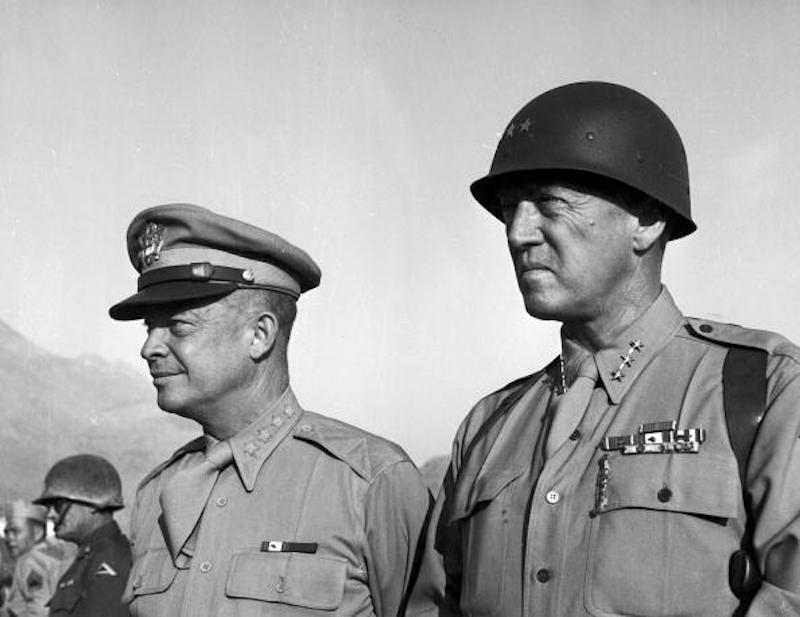
After the war ended, Marshall retired as Chief of Staff, looking forward to some peace and quiet at his home in Leesburg, Virginia. But problems were cropping up all over the post-war world that would call him back to duty.
Within 2 months, Truman asked Marshall to serve as special envoy to China to try and broker a coalition government between Chiang Kai Shek’s nationalists and Mao’s communists. The two factions had fought the Japanese together, but were now locked in a bloody civil war for control of China. Marshall spent 2 years in China, at one point getting Mao to agree to give up armed revolution and build a democracy with the nationalists.
It was an impossible situation. Success required him to be seen as impartial, and with anti-communist fervor rising in the United States, the Chinese communists didn’t trust him. In the end, he couldn’t bring the two sides together. Marshall would never again attempt to broker a power-sharing agreement with Communists.
Upon returning to DC in January 1947, Truman made Marshall Secretary of State to oversee the rebuilding of Europe. America was now the most powerful nation in world, but relations with the Soviets had soured. Europe was in tatters and Stalin wanted it to slide further into chaos, making it ripe for communist takeover.
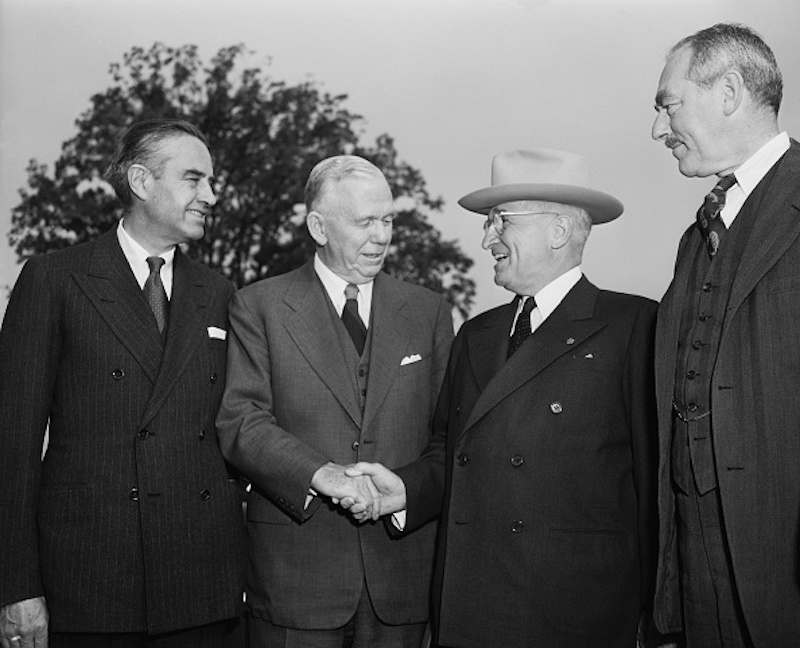
As the disintegration of Europe accelerated, Truman and Marshall knew a free Europe couldn’t survive without American help. In a speech before both houses of Congress, Truman announced the “Truman doctrine” that would underpin American foreign policy for the rest of the century.
“I believe it must be the policy of the United States to support free peoples who are resisting subjugation by armed minorities or by outside pressures. I believe that we must assist free peoples to work out their own destinies in their own way. I believe that our help should be primarily through economic and financial aid, which is essential to economic stability and orderly political process.” ~ President Harry S. Truman
The Truman doctrine included a reconstruction plan for Europe to fight hunger, poverty, desperation and chaos and help revive working economies. To get the plan through a Congress dominated by the opposition party, Truman wanted Marshall’s name and face on it.
In a speech at Harvard, Marshall laid out what would be known as the Marshall Plan, a loan program to help rebuild Europe. With Marshall leading the charge, the Republican-led Congress passed the Plan by an overwhelming margin. Marshall was able to depoliticize the issue and help Congress see the big picture — the long range benefits of containing the communists and being repaid by future trade with a free Europe.
“Our policy is directed not against any country or doctrine but against hunger, poverty, desperation and chaos. Its purpose should be the revival of a working economy in the world so as to permit the emergence of political and social conditions in which free institutions can exist.” ~ George C. Marshall
When European nations met to consider the Marshall Plan, the Eastern European communist nations all refused on Stalin’s order, claiming it was imperialism. It was clear Stalin and the Communists were acting in bad faith. As the Marshall Plan was implemented in the nations of Western Europe, it marked the real beginning of the cold war split between the communist and free world.
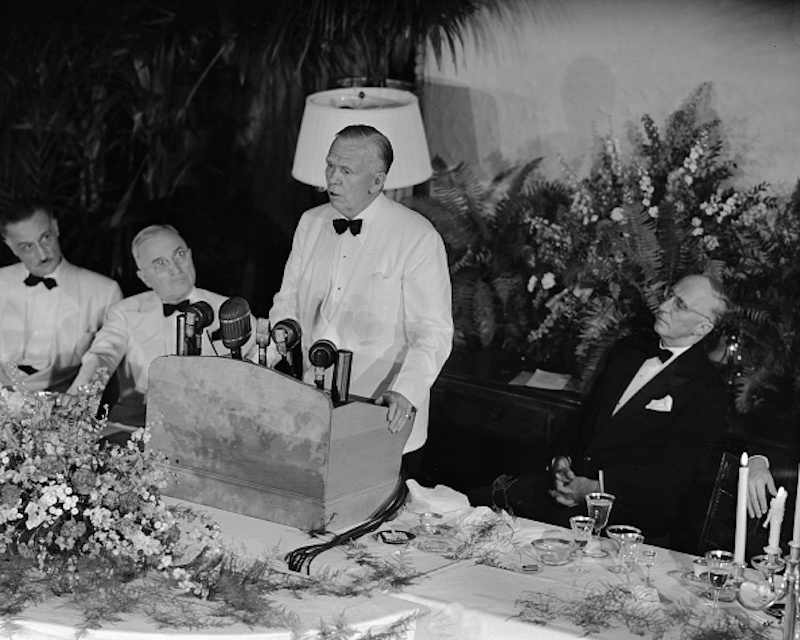
In 1949, the communists were gaining ground. Mao had won the civil war for China and formed a communist state while Stalin attempted to choke off West Berlin with a blockade and detonated Russia’s first nuclear bomb. Because the US hadn’t intervened to stop the communists from taking China, Stalin believed he could get away with a communist takeover of the Korean peninsula.
Following World War II, Korea was divided between Soviet and American zones at the 38th parallel. In June 1950, Korean communists with Soviet support, crossed the 38th parallel and invaded South Korea, quickly overwhelming South Korean forces. Pursuant to a UN Resolution for military assistance, the US entered the war on South Korea’s side. World War II hero, General Douglas MacArthur, was named supreme commander of Allied forces.
With the war going poorly at first, Truman called on Marshall again, making him Secretary of Defense and charging him to quickly restore the US military and turn the war around. MacArthur had just launched a surprise invasion of Inchon and had North Korean forces on the run. But when MacArthur crossed the 38th parallel into North Korea, Chinese Red army troops poured in to help their communist allies, raising the specter of World War III.
As Truman tried to avoid a broader conflict with Russia or China, MacArthur publicly clashed with the President over strategy. MacArthur wanted to take the war to China, claiming that failure to do so was damaging the morale of his troops. Marshall was caught in the middle, dealing with a popular general who had just orchestrated an incredible turnaround, but was threatening to widen the war and undermining the authority of the Commander in Chief.
“When a general complains of the morale of his troops, the time has come to look at his own.” ~ George C. Marshall
Marshall convened a meeting of the Joint Chiefs of Staff, recommending to Truman that MacArthur be relieved of command. Truman fired MacArthur in April of 1951, causing a political firestorm back home.
After 50 years defending his nation, George Marshall retired from public service in September 1951. During his time as Secretary of Defense, he retooled the US army to fight the Cold War and forced the Korean War to a stalemate, preventing a hot war with the Soviet Union or Red China.
“The only way human beings can win a war is to prevent it.” ~ George C. Marshall
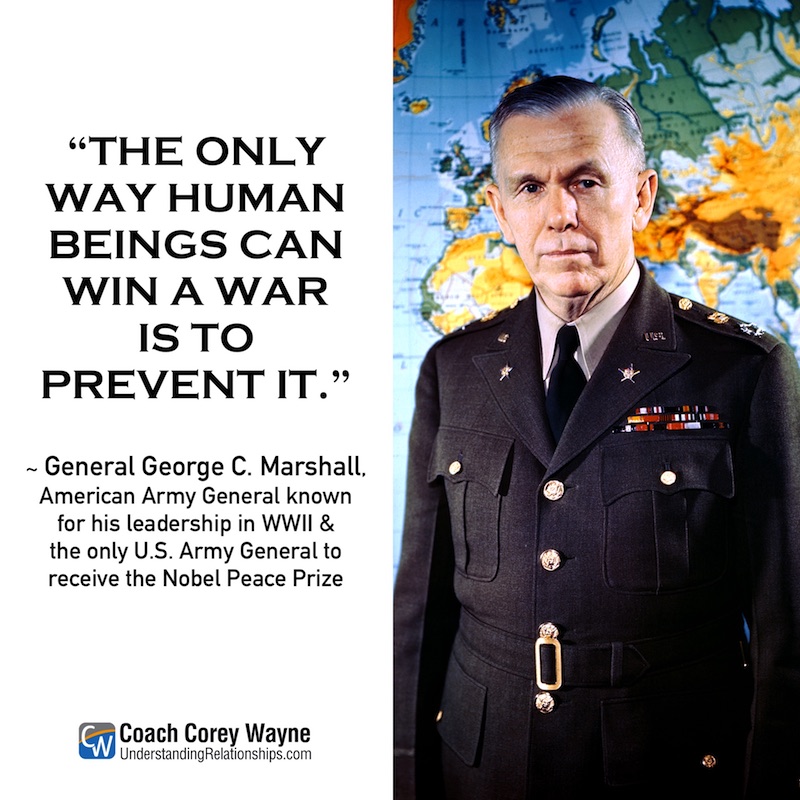
“Wars can be prevented just as surely as they can be provoked, and we who fail to prevent them, must share the guilt for the dead.” ~ General Omar Bradley
Marshall had done his best to stem the tide of Communism, but he couldn’t make peace with Stalin or Mao. Unlike Marshall, neither communist leader exhibited any candor or integrity in their dealings with the West and both routinely lied about their global intentions. In retrospect, it was an impossible task considering their quest for world domination.
Marshall would be awarded the Nobel Peace prize in December 1953 for his efforts to rebuild Europe and win the peace. To this day, he remains the only soldier to ever receive it.
“George Marshall’s contributions to our nation and the world cannot be overstated. He was the organizer of victory and the architect of peace during and following World War II. He won the war, and he won the peace. His characteristics of honesty, integrity, and selfless service stand as shining examples for those who study the past and for those generations who will learn about him in the future.” ~ The Marshall Foundation
George Marshall was a man of prodigious abilities, but his mastery of himself was what drove his achievements. It made him fearless to speak his mind to world leaders and earned him a reputation as a truth-teller.
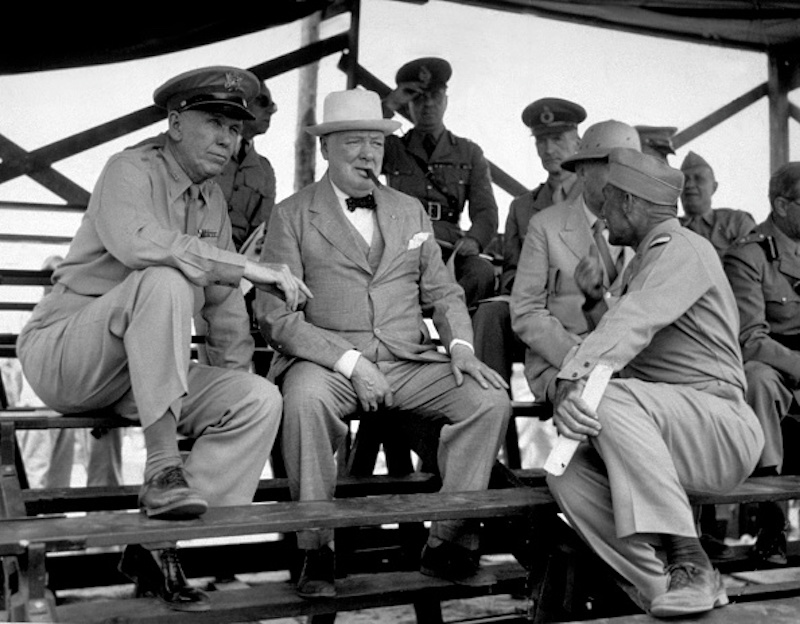
His candor and integrity enabled him to convince others to build the military might and pursue the strategies that won World War II. By lending his name and stature to the program to rebuild Europe after the war, he also won the peace, helping Western Europe remain free against communist expansionism.
From humble beginnings to the pinnacle of world power, George C. Marshall established himself as a great-souled leader by mastering himself and arguably did more to advance the cause of human freedom than any other person in the 20th century.
“Men can do a great deal with very little if they have high morale and determination.” ~ George C. Marshall
You can learn more by reading Corey Wayne’s book, “Mastering Yourself” for FREE on his website UnderstandingRelationships.com by subscribing to the newsletter.
Get the Book “How To Be A 3% Man”
*Amazon and the Amazon logo are trademarks of Amazon.com, Inc. or its affiliates. As an Amazon Associate I earn from qualifying purchases. **Free with a new Audible.com membership
*Amazon and the Amazon logo are trademarks of Amazon.com, Inc. or its affiliates. As an Amazon Associate I earn from qualifying purchases.
How to Be a 3% Man
Paperback | $29.99
How to Be a 3% Man
Hardcover | $49.99
How to Be a 3% Man
Paperback | $29.99
How to Be a 3% Man
Hardcover | $49.99
*Amazon and the Amazon logo are trademarks of Amazon.com, Inc. or its affiliates. As an Amazon Associate I earn from qualifying purchases.
Get the Book “Mastering Yourself”
*Amazon and the Amazon logo are trademarks of Amazon.com, Inc. or its affiliates. As an Amazon Associate I earn from qualifying purchases. **Free with a new Audible.com membership
*Amazon and the Amazon logo are trademarks of Amazon.com, Inc. or its affiliates. As an Amazon Associate I earn from qualifying purchases.
Mastering Yourself
Paperback | $49.99
Mastering Yourself
Hardcover | $99.99
Mastering Yourself
Paperback | $49.99
Mastering Yourself
Hardcover | $99.99
*Amazon and the Amazon logo are trademarks of Amazon.com, Inc. or its affiliates. As an Amazon Associate I earn from qualifying purchases.
Get the Book “Quotes, Ruminations & Contemplations”
*Amazon and the Amazon logo are trademarks of Amazon.com, Inc. or its affiliates. As an Amazon Associate I earn from qualifying purchases. **Free with a new Audible.com membership
*Amazon and the Amazon logo are trademarks of Amazon.com, Inc. or its affiliates. As an Amazon Associate I earn from qualifying purchases.
Quotes, Ruminations & Contemplations
Paperback | $49.99
Quotes, Ruminations & Contemplations
Hardcover | $99.99
*Amazon and the Amazon logo are trademarks of Amazon.com, Inc. or its affiliates. As an Amazon Associate I earn from qualifying purchases.
If you have a question you would like me to consider answering in a future Video Coaching Newsletter, you can send it (3-4 paragraphs/500 words max) to this email address: [email protected]
If you feel I have added value to your life, you can show your appreciation by doing one of the following three things:
- Make a donation to my work by clicking here to donate via PayPal anytime you feel I have added significant value to your life. You tip your favorite bartender, right? How about a buck... $2... $3... $5... $10... $20... what ever YOU feel its worth, every time you feel I have given you a good tip, new knowledge or helpful insight. Please feel free to donate any amount you think is equal to the value you received from my eBook & Home Study Course (audio lessons), articles, videos, emails, newsletters, etc.
- Referring your friends and family to this website so they can start learning and improving their dating and relationship life, happiness, balance and overall success in every area of their lives too!
- Purchase a phone/Zoom (audio only) coaching session for yourself or a friend by clicking here. Download the Amazon.com Kindle version of my book to your Kindle, Smartphone, Mac or PC for only $9.99 by clicking here. Get the iBook version for $9.99 from the iBookstore by clicking here. Get the Audio Book for FREE $0.00 with an Audible.com membership by clicking here or buy it for $19.95 at Amazon.com by clicking here. Get the iTunes Audio Book for $19.95 by clicking here. That way, you'll always have it with you to reference when you need it most. Thank you for reading this message!
From my heart to yours,

Corey Wayne
Author, Speaker, Peak Performance Coach, Entrepreneur
Click Anywhere on Today’s Instagram Image Below & You’ll Be Taken To My Instagram Page. When you get to my Instagram page, click the “Follow” Button so you can follow me on Instagram. I upload several new Instagram photos per week.
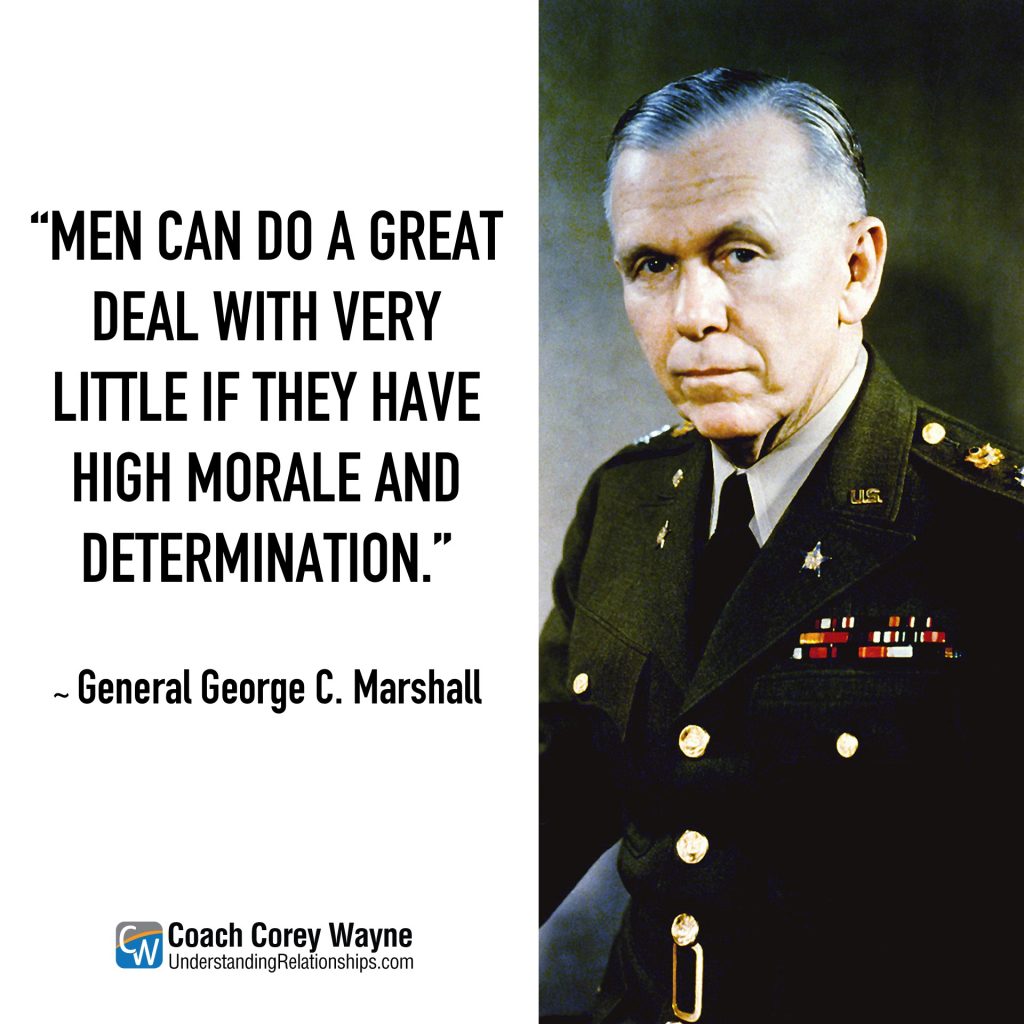










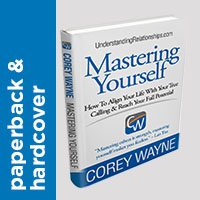

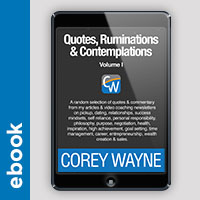
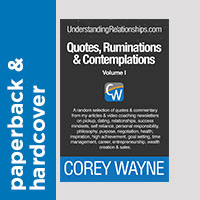
Leave A Reply